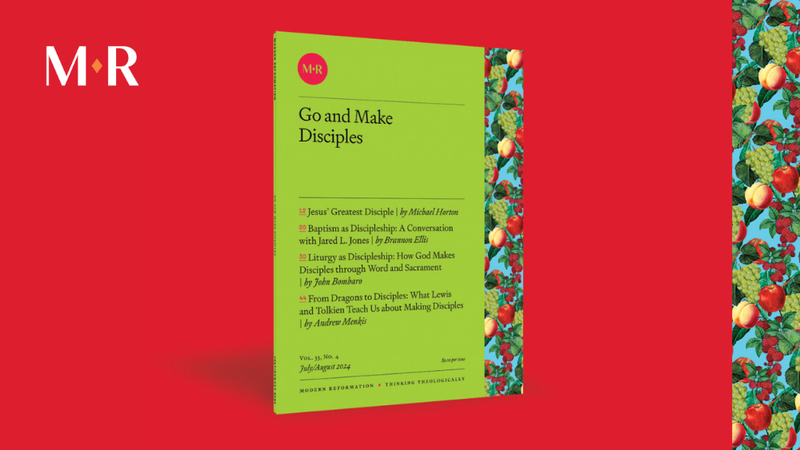Jesus came and said to [the eleven], “All authority in heaven and on earth has been given to me. Go therefore and make disciples of all nations, baptizing them in the name of the Father and of the Son and of the Holy Spirit, teaching them to observe all that I have commanded you. And behold, I am with you always, to the end of the age.” (Matt. 28:18–20)
It’s all here. The universal rule of the resurrected Lord. The mystery of the Holy Trinity. The foundational authority given to the apostles and those called to teach and baptize according to their testimony. A community of faith reconciled to God and one another through word and sacrament. The mission of God’s people to carry the gospel into all nations, empowered by Christ’s faithful presence with us always—one Shepherd leading one flock. Virtually all of Christianity is contained in Matthew’s last recorded words from Jesus to his apostles in Galilee.
In this issue, we’re exploring the church’s calling to be disciples of Jesus and to make disciples of Jesus. It’s a high and holy calling, which tempts us all the more as committed Christians either to oversimplify discipleship or overcomplicate it.
We undercomplicate things when we pretend that making disciples is—as Charles Finney infamously defined conversion and revival—“a purely philosophical result of the right use of constituted means.” God’s ways, like his character, are beyond our comprehension or control. No sinner ever was, or made someone else, a true disciple of Jesus Christ except by the life-giving wisdom and power of God alone.
But we also overcomplicate things. Although I hate to agree in any sense with Finney, a fruitful life of Christian discipleship is indeed “the result of the right use of constituted means.” But these means couldn’t be any further from “purely philosophical”—in fact, the means by which God transforms us are the very things we most readily abandon as irrational, ineffective, or even irresponsible in our relationships with one another.
Even experienced Christians struggle to see the misery and indignity of the cross as supremely wise and powerful—as supremely effective—instruments in the hands of our Father to renew us little by little in the image of his Son. In the dirty work of our spiritual discipleship, grace and love are God’s go-to power tools, yet we always seem to reach for them last. There must be something more effective at changing minds and hearts than words, worship, water, bread, and wine, right? How easily we forget the wisdom of undeserved forgiveness, how little thought we give to the mountains moved by mustard-seed-sized faith!
So, as we follow and learn from our Lord, like silly sheep attempting to guide others on the same journey, let’s refuse to overcomplicate or oversimplify the work of being a disciple or making disciples. Let’s focus instead on following our Good Shepherd together, watching him as he watches over us while he accomplishes everything for his glory and our good. After all, “It is God who works in you, both to will and to work for his good pleasure” (Phil. 2:13). And what is his good pleasure? Nothing less than to give his little flock the kingdom (Luke 12:32).







